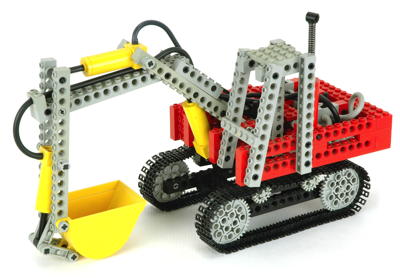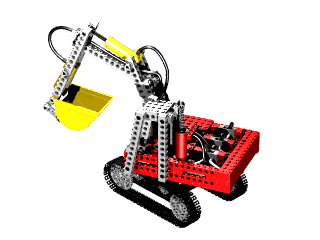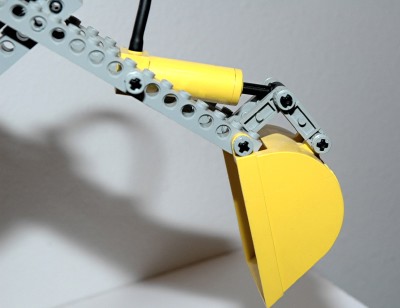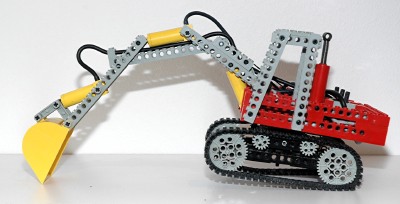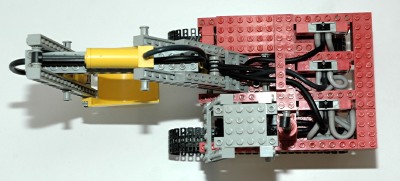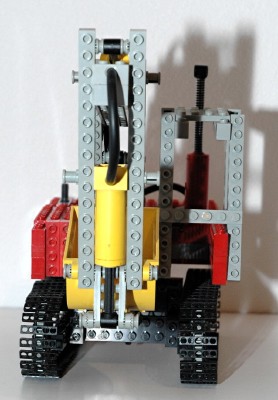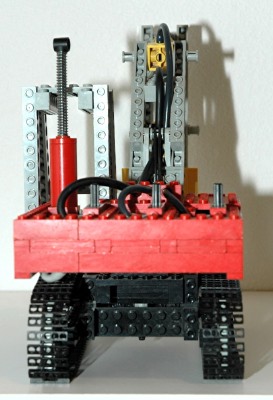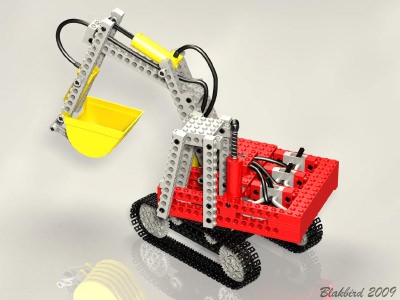Features
|
|
Pneumatics
This model contains a single acting pneumatic system. The components of
this system are connected with rubber tubing routed through the holes
in the beams.
A single pump provides air pressure. Depression of the piston
produces positive pressure, and raising the piston produces negative
pressure (suction), limited by atmospheric pressure. This
particular pump uses the longer piston from the 64mm actuator which
gives it a longer stroke.
The pressure is fed to a distribution block with an input (pump) and
two outputs (switches). One output has a check valve which flows
out and the other a check valve which flows in. Each of these is
routed to a different inlet of a selector valve (switch) with one
output. Selection of the switch in one direction therefore allows
pressure output, while selection in the other direction allows
suction. This model has three switches so the tubes from the
distribution block are split with T fittings.
Finally, there are three pneumatic actuators which have a port at the
head end
to accept input from the switch. Positive pressure extends the
piston, while suction retracts it. Like a real excavator, the
actuators are designed to work in compression during their power
stroke. A real hydraulic actuator has significantly less output
force in tension than in compression due to the fact that the annular
area of the rod end of the cylinder is less than the full bore area of
the head end.
The picture shows the three switches and the pump. The
distribution block is under the pump. If you watch the animation
closely, you can see the position of the switches.
|
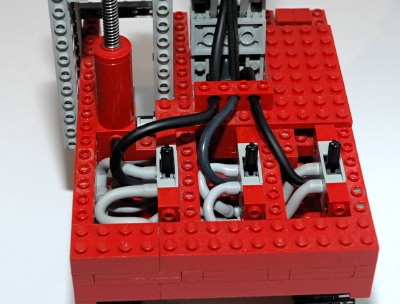 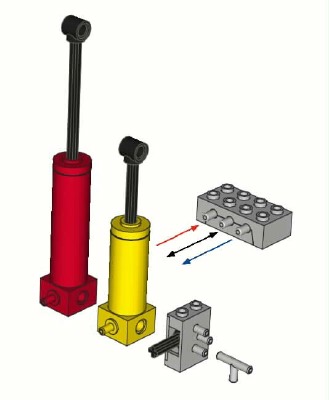
Click for an animation of the
pneumatic features in motion.
|
|
Luffing Boom
The main boom can be luffed pneumatically. It has a fixed angle
of about 135 degress in the middle, but rotates about the base.
The pneumatic actuator pushes to raise the boom, assisted by a set of
rubber bands on the back of the boom (see image).
|
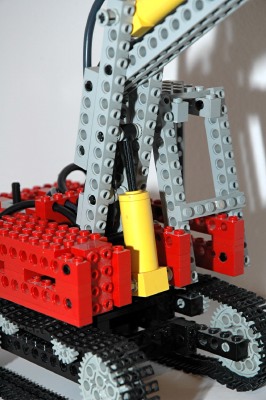
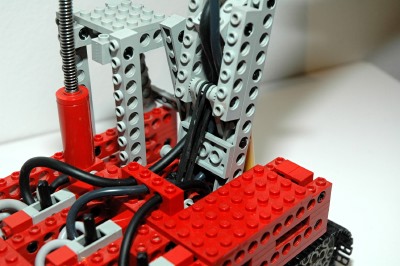
Click for an animation of the boom
luffing.
|
|
Dipper
The dipper can be moved pneumatically. An actuator pushes to pivot
the dipper arm down. This power stroke would be used to push the bucket
into the ground. The actuator only has a moment arm of 3 studs,
so it has less mechanical advantage to produce motion than the boom
actuator.
|
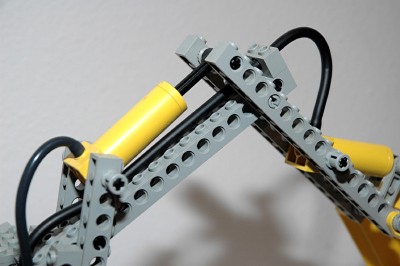
Click for an animation of the jib
luffing.
|
|
Bucket
This is the first model to include a specially molded bucket
part. A pneumatic actuator pushes to pivot the bucket and scoop
earth (or LEGO® parts).
|
|
|
Slewing
The 360 degree rotation of the boom and cab is accomplished very
simply. An old 4x4 turntable is used. To help
keep the upper assembly from falling off the turntable, a new threaded
axle is used with a pair of jam nuts at either end. Actual
rotation is accomplished manually; there is no drive system for
slewing. |
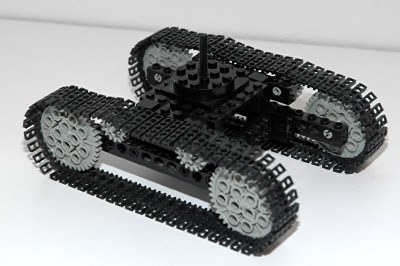
Click for an animation of the boom
slewing.
|
|
Tracks
This set uses 110 track elements for locomotion. 40 tooth spur
gears are used to represent drive cogs, with 16 tooth spurs representing
idlers.
|
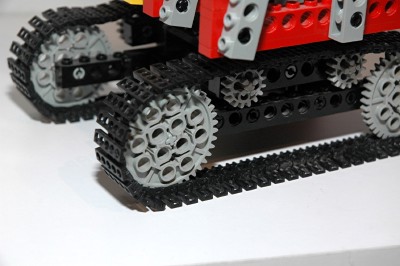
|

